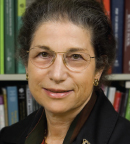
This shows that recommendations by themselves may not be enough to change practice for patients with terminal disease. More education of patients and physicians is needed to achieve actual changes in practice.— Ronald C. Chen, MD, MPH
Tweet this quote
Oncologists in the United States may need to improve their efforts to reduce unnecessary care for younger patients with terminal cancer over the last 30 days of life, based on the findings of a study reported at the 2016 ASCO Annual Meeting.1 Contrary to recommendations, aggressive care is still being provided to younger cancer patients in the last 30 days of life, according to the preliminary results of an analysis of health claims data in people younger than age 65. The study found a substantial percentage of patients with cancer younger than age 65 continue to access emergency room care, are admitted to the hospital, have invasive procedures, and receive chemotherapy during end-of-life care.
“This is one of the first and largest studies to assess end-of-life care in a non-Medicare population,” said lead author Ronald C. Chen, MD, MPH, of the University of North Carolina Lineberger Comprehensive Care Center, Chapel Hill. “Of cancer patients younger than age 65 with incurable cancers, 70% to 75% received aggressive care within the last 30 days of life.”
The study also showed that between 2012 (when ASCO’S Top-Five Choosing Wisely recommendations were published) and 2014, there was no drop-off in the provision of aggressive end-of-life care for the five solid tumors studied.
“Recommendations by themselves may not be enough to change practice for patients with terminal disease. More education of patients and physicians is needed to achieve actual changes in practice,” said Dr. Chen.
Study Details
The study was based on claims data from the HealthCore Integrated Research Database across 14 states for 28,731 patients in the United States under age 65 with metastatic lung, colorectal, breast, pancreatic, or prostate cancer who died between 2007 and 2014.
“Across these five cancers, findings were remarkably consistent,” Dr. Chen said. The rates of chemotherapy ranged from 24.2% for prostate cancer to 32.6% for breast cancer. Rates of radiotherapy ranged from 5.8% for pancreatic cancer to 20.6% for lung cancer. Invasive procedure rates ranged from 25.3% for prostate cancer to 31.1% for pancreatic cancer. About two-thirds of all patients were admitted to the hospital or emergency department. Between 15% and 20% of patients had care in the intensive care unit. About one-third died in the hospital.
Additionally, only 15% to 18% of these terminally ill patients received hospice care. “We think there is too much aggressive care, and it might be related to the fact that too few of these patients enroll in hospice,” Dr. Chen explained. ■
Disclosure: The study was funded by the North Carolina Translational and Clinical Sciences Institute. Dr. Chen was a consultant to Medivation/Astellas and has received research funding from Accuray.
Reference
1. Chen RC, et al: 2016 ASCO Annual Meeting. Abstract LBA10033. Presented June 6, 2016.


